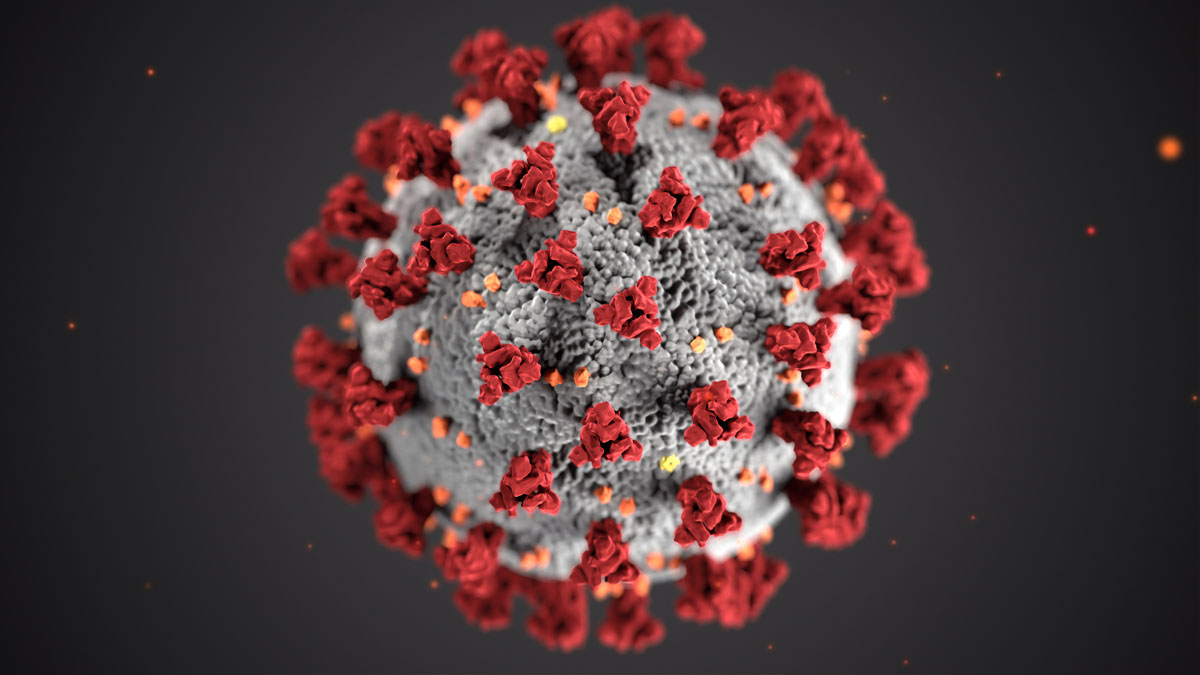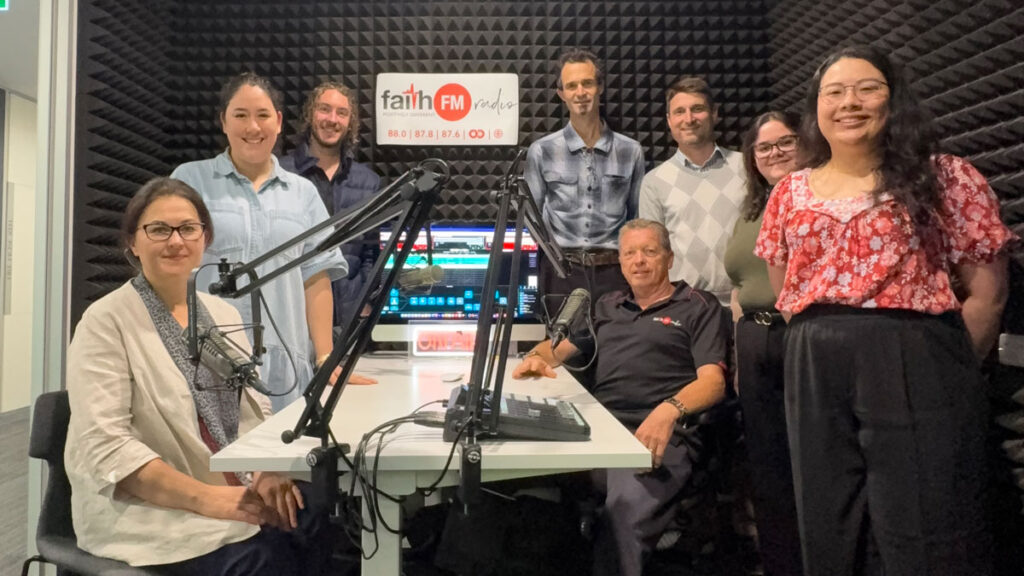How should local churches approach potluck lunches, communion services and other activities? Here is some advice from the Australian Union Conference.
With the rise in Coronavirus (COVID-19) cases in an increasing number of countries, the Australian Union Conference is reiterating the advice given by the General Conference Health department.
GENERAL GUIDELINES
AUC staff will continue to monitor health guidelines and restrictions in various countries and will update advice as appropriate.
Current General Conference advice is:
- Frequently clean hands with soap and water or alcohol-based hand rub.
- Follow the coughing and sneezing etiquette: sneeze into the elbow of your folded arm; cover your cough. Take masks with you when travelling. Should you encounter situations where people cough and sneeze and are in close proximity, don’t hesitate to use your mask (airports, airplane cabin, lobbies, malls, student classes and other gatherings, etc.).
- Maintain a social distance—at least 3 feet or 1 metre—between yourself and other people. Avoid close contact with those who are coughing or sniffling.
- Avoid touching/rubbing your eyes, nose, and mouth.
- If you develop a cough and experience changes in your breathing, seek medical help early and share your travel history with the health-care provider.
- Avoid open markets and direct contact with animals/animal products.
- Follow careful food-safety practices (well-cooked food, clean produce, pasteurised milk, etc.).
- Do not avoid the flu vaccine.
- Avoid travel to endemic areas.
If you think you’ve been exposed through travel or contact with an affected individual, seek advice from your primary-care physician. Be sure to disclose your travel history. There’s global awareness, and this isn’t the time to panic, but rather to quietly trust in God.
Very practical advice is provided by the World Health Organisation. This includes taking self-quarantine measures if returning from an affected area. Access the Australian Government Smart Traveller-Alert website for updated information regarding travel.
Some people have been asking about plans for the various events and meetings scheduled for the next few months. Please be assured that the health and wellbeing of our church members and communities is the top priority, and the Australian Union Conference and local conferences are reviewing the situation and possible scenarios.
Every effort will be made to provide for the best approaches to be taken in case of a continued unfolding of challenging circumstances in health protection and travel. At this point in time, the Big Camps for North NSW, Western Australia, South Australia and Victoria have been cancelled in light of advice received from state health authorities and the potential threat to our vulnerable people; other events are still in place.
We will continue to monitor further developments and work on advice given by the WHO, Australian Government and state health authorities and also the advice given by the General Conference Health Department. Should the situation change for any events within the Australian Union Conference, the participants will be notified. The intention is to keep mission, leadership and training active within what is safe, and within government guidelines. Please pray for God’s guidance and direction in all that is done.
GUIDELINES TO CHURCHES RE: COVID-19 CORONAVIRUS
At this stage, the Australian Government is not recommending limitations on public gatherings that would prevent congregations from meeting.
The following advice is recommended for churches to assist in the safety and wellbeing of members and visitors.
Provide adequate handwashing facilities and hand sanitisers:
- Churches need to ensure that they have hand washing facilities with regular stock of liquid hand soap in all bathrooms and kitchens.
- Provide hand sanitisers in foyers, church halls, and meeting rooms. Hand gels are most effective when they contain a minimum of 60 per cent alcohol.
Communion services:
- Give adequate time for attention to hygiene practices before and after the communion.
- Wash hands after foot washing for 20 seconds and dry thoroughly.
- Pastors and Elders breaking and distributing the emblems (bread and wine) are advised to wash hands as indicated above and use a hand sanitiser.
- Practice proper disposal of communion cups and use gloves.
- If Pastors, Elders, Deacons or Deaconesses are suffering from a cold or flu symptoms, they should not be serving communion.
Potluck lunches and agape feasts:
- If serving food, use disposable cutlery wrapped in serviettes. Avoid uncovered cutlery in open baskets that people dip into and search through before picking up.
- Use gloves when serving food, and beverages both hot and cold.
- Have servers serve the food instead of individuals serving themselves where everyone is touching the serving spoons.
- Serve more single wrapped or packaged items where possible.
- Should a significant breakout of the virus be declared, potluck lunches and agape feasts should be avoided.
Announcements:
Please make verbal announcements about hand hygiene and greetings and also place notices in the church bulletin. This needs to be undertaken on a weekly basis to ensure that visitors and members who have been absent from church, will both hear and read the announcements.
Church cleaning:
As the COVID-19 Coronavirus lives on surfaces for a few days, it is advised to ensure a thorough cleaning of the church premises each week.
- The church caretaker/cleaner should be advised to undertake a thorough cleaning each week, attending to church benches, door handles, church rails, light switches and all surfaces in bathrooms, kitchens and meeting places.
- Deacons and Deaconesses may need to assist in the general cleanliness of the church environment and attend to surface cleaning as advised above.
Remind and re-iterate to members the following:
Personal hygiene
- Wash hands often with soap and running water, for at least 20 seconds. Dry with paper towel or hand dryer.
- Try not to touch your eyes, nose or mouth.
- Cover your nose and mouth with a tissue when you cough or sneeze. If you don’t have a tissue, cough or sneeze into your upper sleeve or elbow.
- Isolate yourself at home if you feel sick. If you take medication, ensure you have adequate supplies.
- Phone your GP first if you need medical attention. They will tell you what to do.
- Don’t wear a face mask if you are well.
- Get the flu shot (available April).
- See 10 ways to reduce your risk of Coronavirus.
Feeling unwell?
Symptoms:
If you have a high temperature (38°C or above) or are concerned about a low-grade fever (37.5°C–38°C), coughing and experiencing breathing difficulties or breathlessness, call the Department of Health and Human Service’s Coronavirus hotline on 1800 675 398.
Self-isolation:
If the above symptoms are present and you are concerned you may have the virus, please remain at home and call the Department of Health and Human Service’s Coronavirus hotline on 1800 675 398.
You will be assessed and advised whether you need to be tested for the virus. Do not attend your GP practice but rather call your GP to let them know.
During self-isolation, or if quarantine is advised by a health professional, this could be for a period of two weeks. At this point you should not use public transport, attend public places, or go into work, college, university, school or church.
Older members and individuals with chronic illnesses:
It is important to keep in touch with our older members and those with ongoing health conditions during this time. They are the most vulnerable to the virus. You may need to advise them to worship at home especially if they are frail or currently unwell.
Keeping in touch with them so they do not feel isolated is essential. You may do this through regular phone calls to see how they are doing and to ensure they have adequate resources such as food items and essential utilities.
Preparation ideas for churches
- Review your church’s emergency operation plans and communication plans in the context of a pandemic.
- Consider Live Streaming your services to members who have to self-isolate and/or in the event of suspended church services.
- Remind your congregation that rumour control is essential. Please get information from trusted sources like state health officials and The Department of Health and Human Services website.
- The Government published the Australian Health Sector Emergency Response Plan provides an overview of the national approach and operational plan.
Prayer:
Let us commit to lifting up prayers for those impacted by the COVID-19 Coronavirus and the families, friends and communities who are grieving the loss of loved ones as a result.
We continue to petition God in our daily prayers as we seek His intervention to halt the spread of this virus. We stand on the power and promise of His Word in Psalm 91 as we embrace the protection that God offers us as we abide in Him.
Resources
World Health Organisation
Coronavirus disease (COVID-19) outbreak
General Conference Health Department
Coronavirus – Ways to avoid being infected
SPD – Risk Management Service
Coronavirus – Info for our Travellers
Australian Government – Department of Health
Australian Health Protection Principal Committee (AHPPC) statement on coronavirus (COVID-19)
Coronavirus (COVID-19) health alert
Coronavirus (COVID-19): Know the signs
Coronavirus (COVID-19): Stop the spread
Coronavirus (COVID-19) – what you need to know
Coronavirus (COVID-19) information on the use of surgical masks
Coronavirus (COVID-19) information for employers
Coronavirus (COVID-19) information for schools and early childhood centres, students and parents
Coronavirus (COVID-19) information for universities, students and staff
Coronavirus (COVID-19) information for residents of residential care services and family members
Coronavirus (COVID-19) isolation guidance
Coronavirus (COVID-19) information about home isolation when unwell (suspected or confirmed cases)
Coronavirus (COVID-19) information about returning to your community
State and Territory Health Authorities
New South Wales Government – Health
NSW Government – Health COVID-19
Northern Territory Government
Northern Territory Government COVID-19 Updates
Queensland Health
Government of South Australia – SA Health
Government of South Australia – SA Health COVID-19
Tasmanian Government – Department of Health
Tasmanian Government – Department of Health Coronavirus
Victorian State Government – Health and Human Services
Coronavirus disease (COVID-19)
For the Victorian public – coronavirus disease (COVID-19)
Government of Western Australia – Department of Health
Government of Western Australia – Department of Health COVID-19






